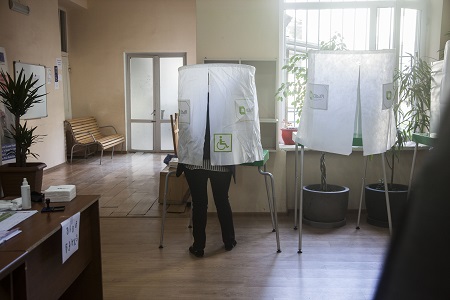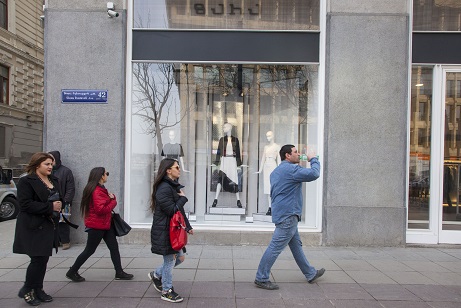NDI polls report ruling party, candidates favored by decided voters

The political part of the polls released by the National Democratic Institute (NDI) and CRRC Georgia say that Georgian Dream (GD) ruling party and its candidates have more supporters among the decided voters.
23 percent of the surveyed people select Georgian Dream (GD), 9 percent United National Movement (UNM), 4 percent for both Bakradze, Ugulava - European Georgia (EG) and the Alliance of Patriots (AoP), and 3 percent for Labor Party,” NDI reported.
When asked for which party would they vote if elections were tomorrow, the numbers do not significantly change: 22 percent GD, 7 percent UNM, and 3 percent EG,” the polls reported.
The survey reads that for the Tbilisi mayoral race, 30 percent support GD candidate Kakha Kaladze, 19 percent independent candidate Aleko Elisashvili, 18 percent UNM’s Zaal Udumashvili, 5 percent EG’s Helene Khostaria, and 3 percent to the Labor Party candidate (not identified at time of poll).
NDI stresses that "62 percent of respondents are undecided.”
This large number of undecided voters presents both a challenge and opportunity for parties. With weeks until the elections, they have plenty of work to do to inspire and motivate citizens, offer relevant policies, and demonstrate meaningful contrast with their opponents,” said Laura Thornton, NDI senior director.
The survey showed that Georgians give mixed assessments on the country’s state of democracy, although freedom of speech, free and fair elections, protection of human rights receive net positive evaluations at 51 percent, 35 percent, and 36 percent, respectively.
The results reflect data collected from June 18 to July 9, through face-to-face interviews with a nationwide representative sample of Georgia’s adult population, excluding occupied territories, that included 2,261 completed interviews. The average margin of error is +/- 2,2 percent.
 Tweet
Tweet  Share
Share




